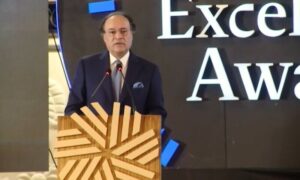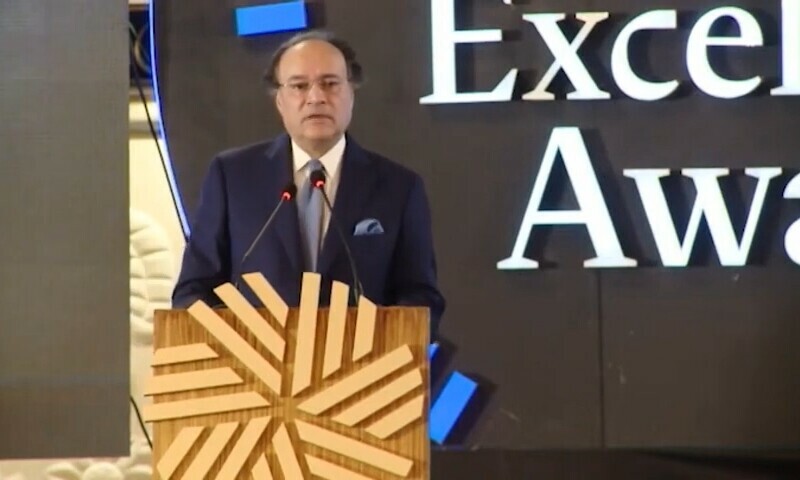KARACHI: Finance Minister Muhammad Aurangzeb is sure to get approval from the International Monetary Fund’s executive board for a new $7 billion Extended Fund Facility this month and considers it the most significant achievement, said sources attending the 21st Annual Excellence Awards hosted by CFA Society Pakistan.

The finance minister was highly optimistic about the agreement with the IMF and said his predecessors could not achieve this kind of agreement. He said he would open the agreement after final approval, expected on Sept 25.
While the minister is satisfied with his achievement, the media reported that the country had to borrow dollars from a commercial bank at high interest rates to qualify for the IMF loan.
“ I don’t know how much the government has borrowed from the commercial banks and how much it has planned to borrow but it would cost the economy heavily,“ said a senior researcher and financial expert.
Says will share agreement with public after securing board approval
He said the IMF loan is like a do-or-die for the economy since the debt servicing has exceeded $26bn this year. State Bank of Pakistan Governor Jameel Ahmed recently said that for FY25, Pakistan’s external debt obligations amount to $26.2bn, of which $12.3bn will be rolled over. Around $4bn in bilateral commercial loans will be repaid and refinanced, bringing the total rollover or refinanced amount to $16.3bn.
“This huge repayment of debt servicing has enormous pressure on the economy. Now the commercial borrowing at double-digit interest rates could further burden the economy in the coming years,” said the financial expert.
“The country is being run on a quarter-to-quarter basis without devising long-term policy,” he said, adding that this hock approach would not help the economic managers to bring the economy out of the debt traps. The country is facing a double debt trap – the domestic and the external borrowing.
The minister has been emphasising revenue growth without giving any clear picture of achieving economic growth that may yield higher revenue for the country. Also, the State Bank’s cautious approach, reflecting the government’s intentions, compelled it to keep its policy rate at 17.5pc, the highest in the region, making the domestic investors incapable of borrowing at this rate and competing with the regional products.
The government hopes to achieve a 3.5pc economic growth in FY25 with 7pc inflation. Experts said this could be achieved this year, but there is no plan for the next fiscal year. Mr Aurangzeb and the SBP chief assured the nation that the new $7bn loan would be the last programme sought from the IMF.
“Where is the plan to avoid the next IMF loan? Every move is a short term which will finally cripple the economy again enough to seek yet another help from the IMF,” said a senior analyst.
He said the country needs at least a 10-year comprehensive economic policy to escape the mess the governments have created in the last decade.



